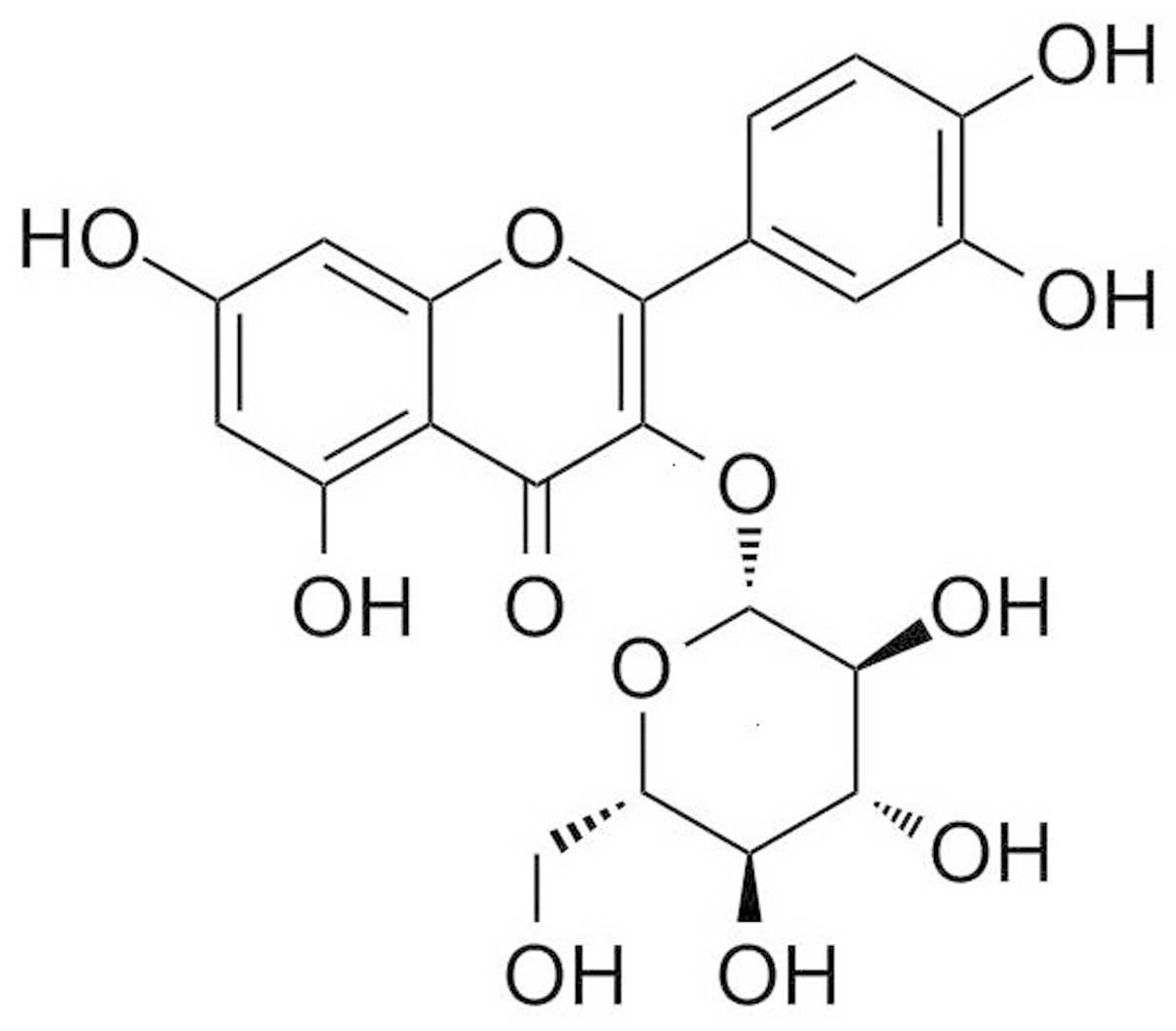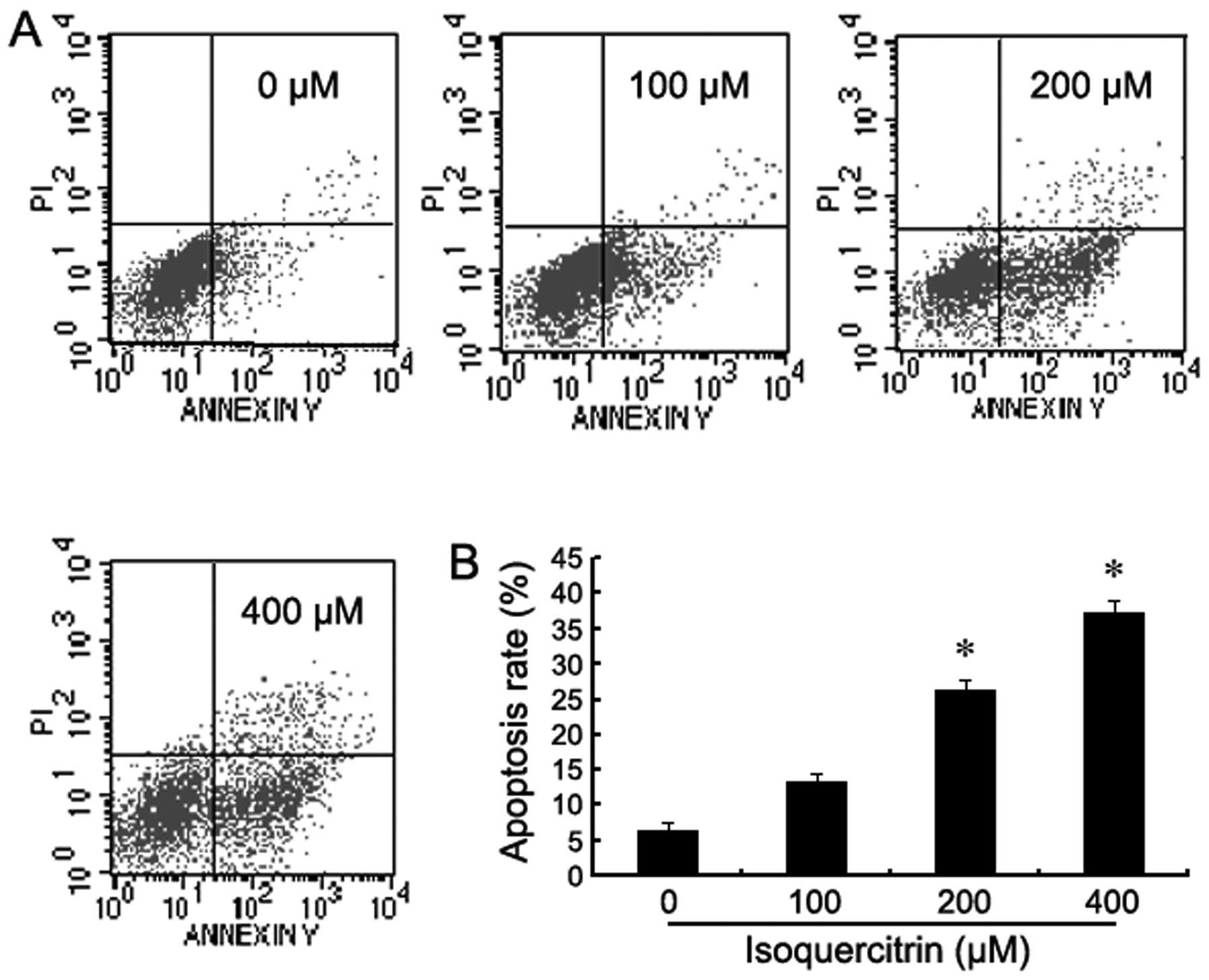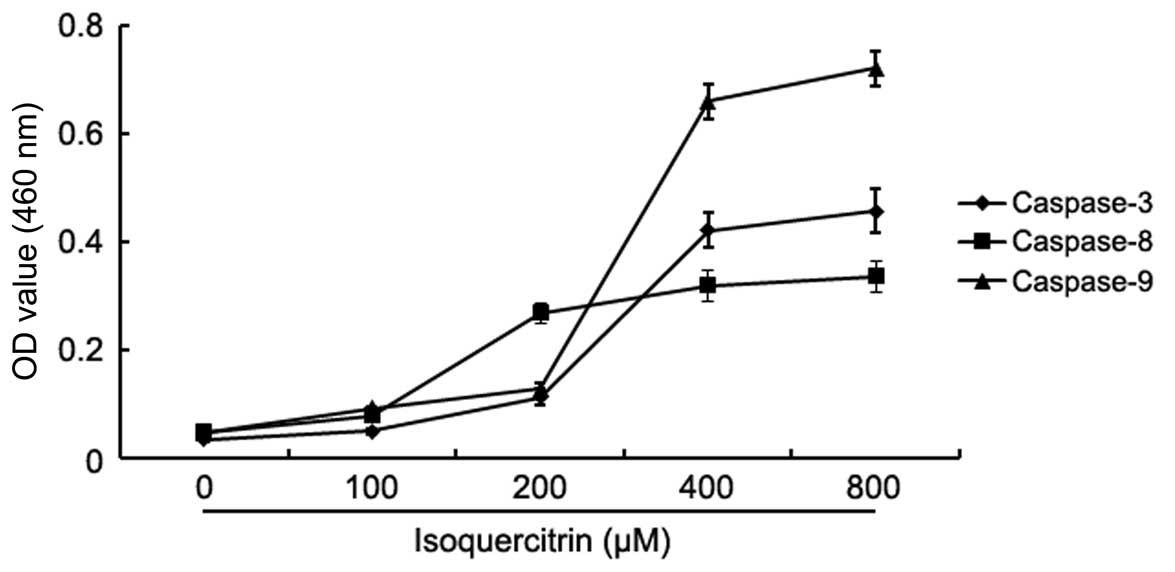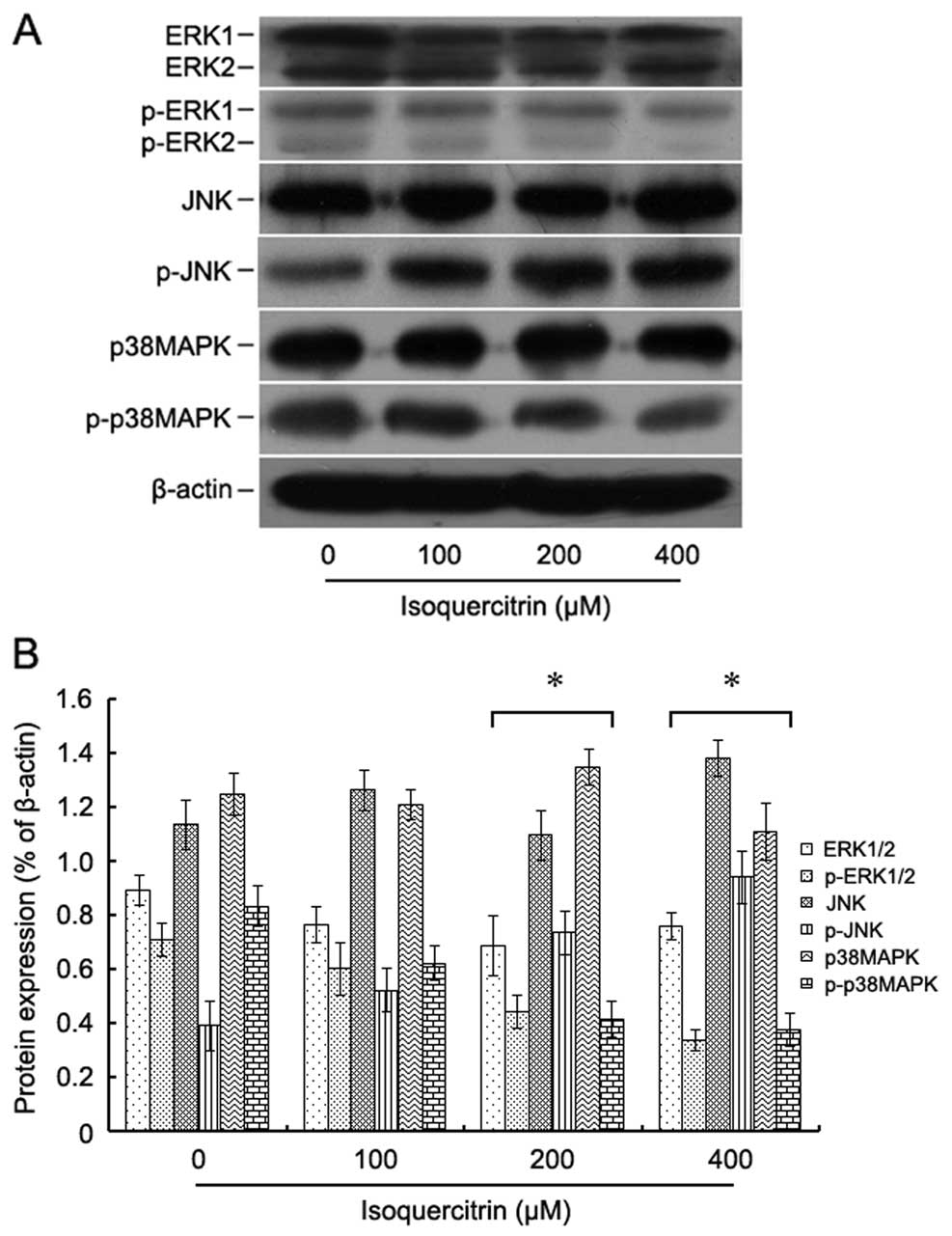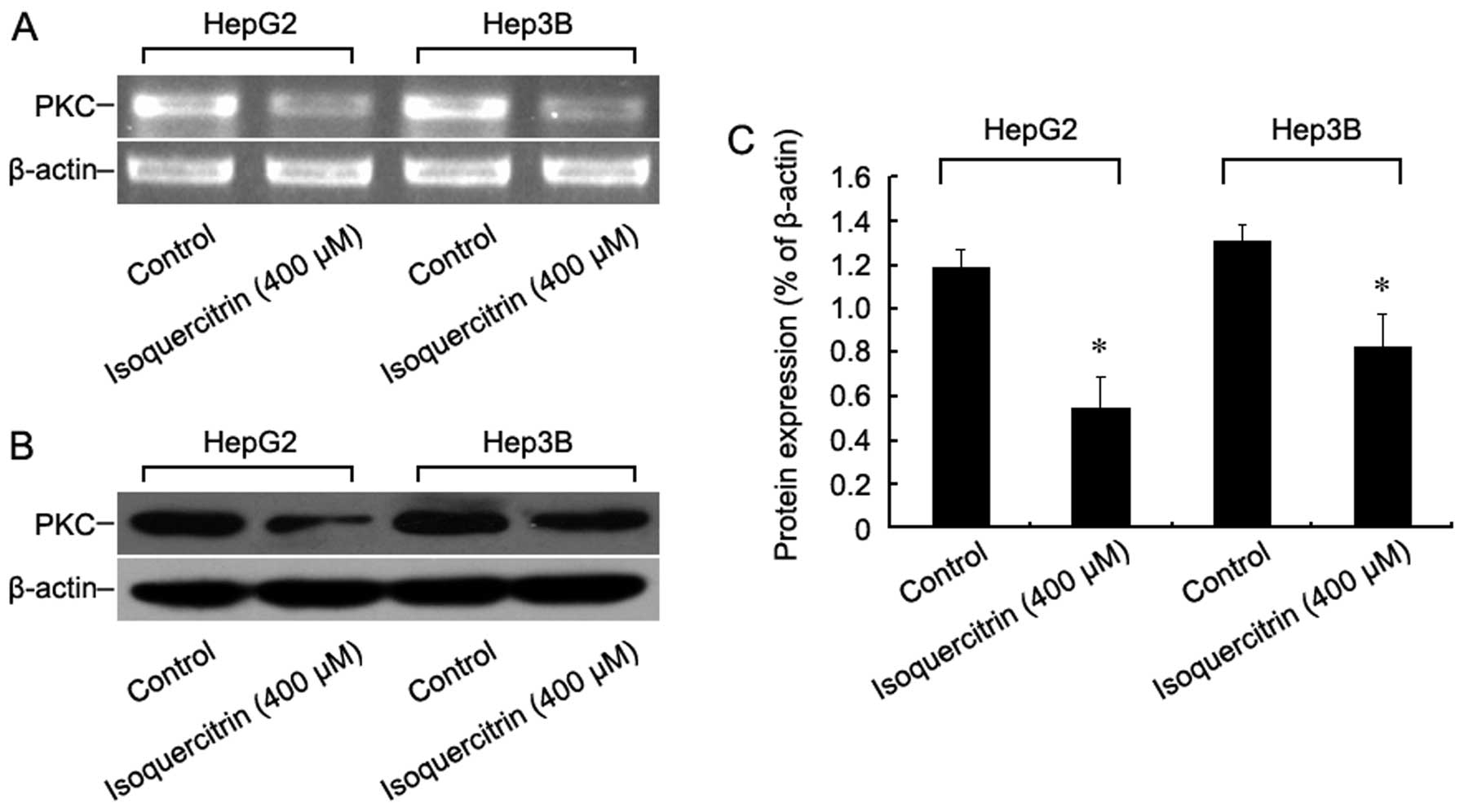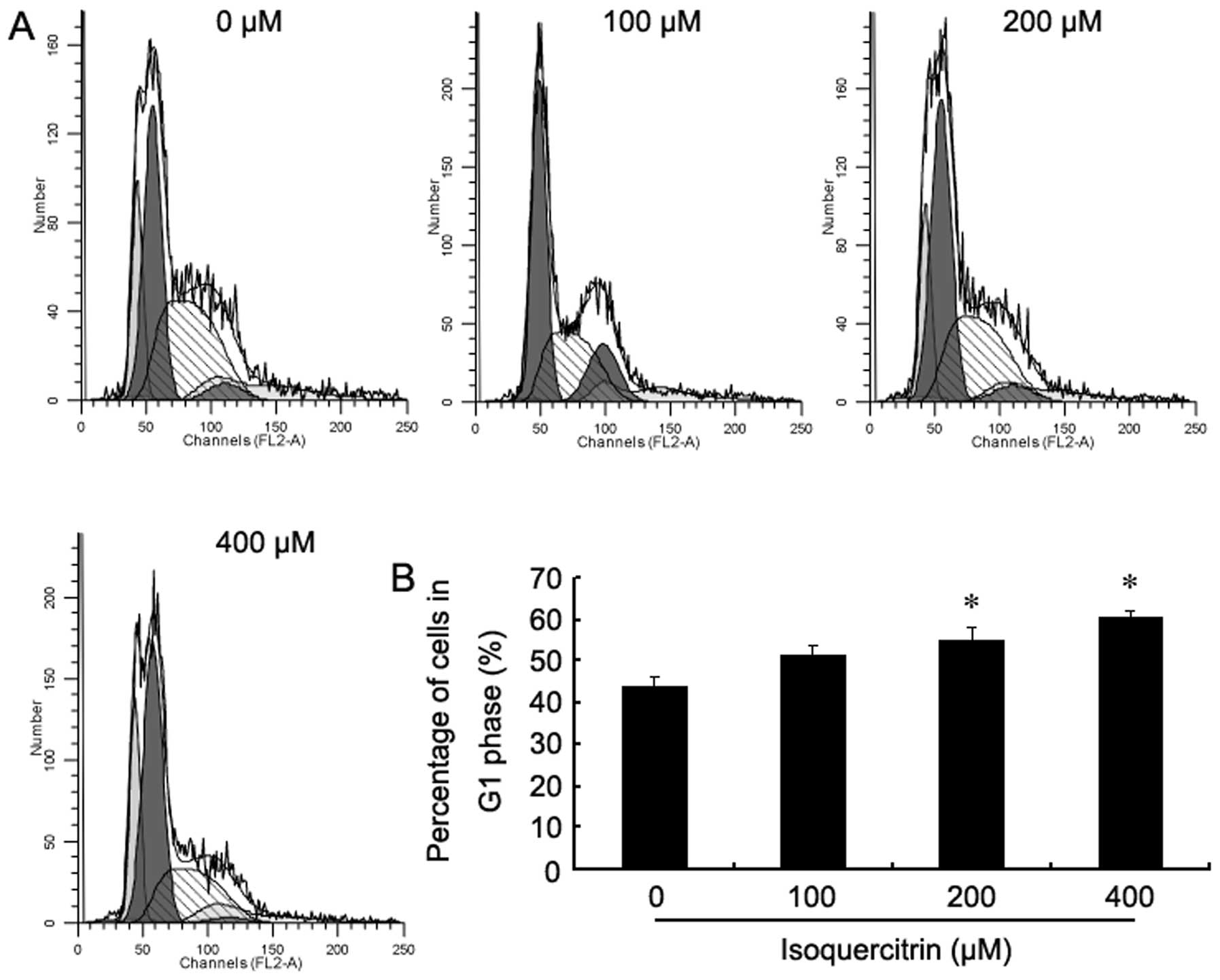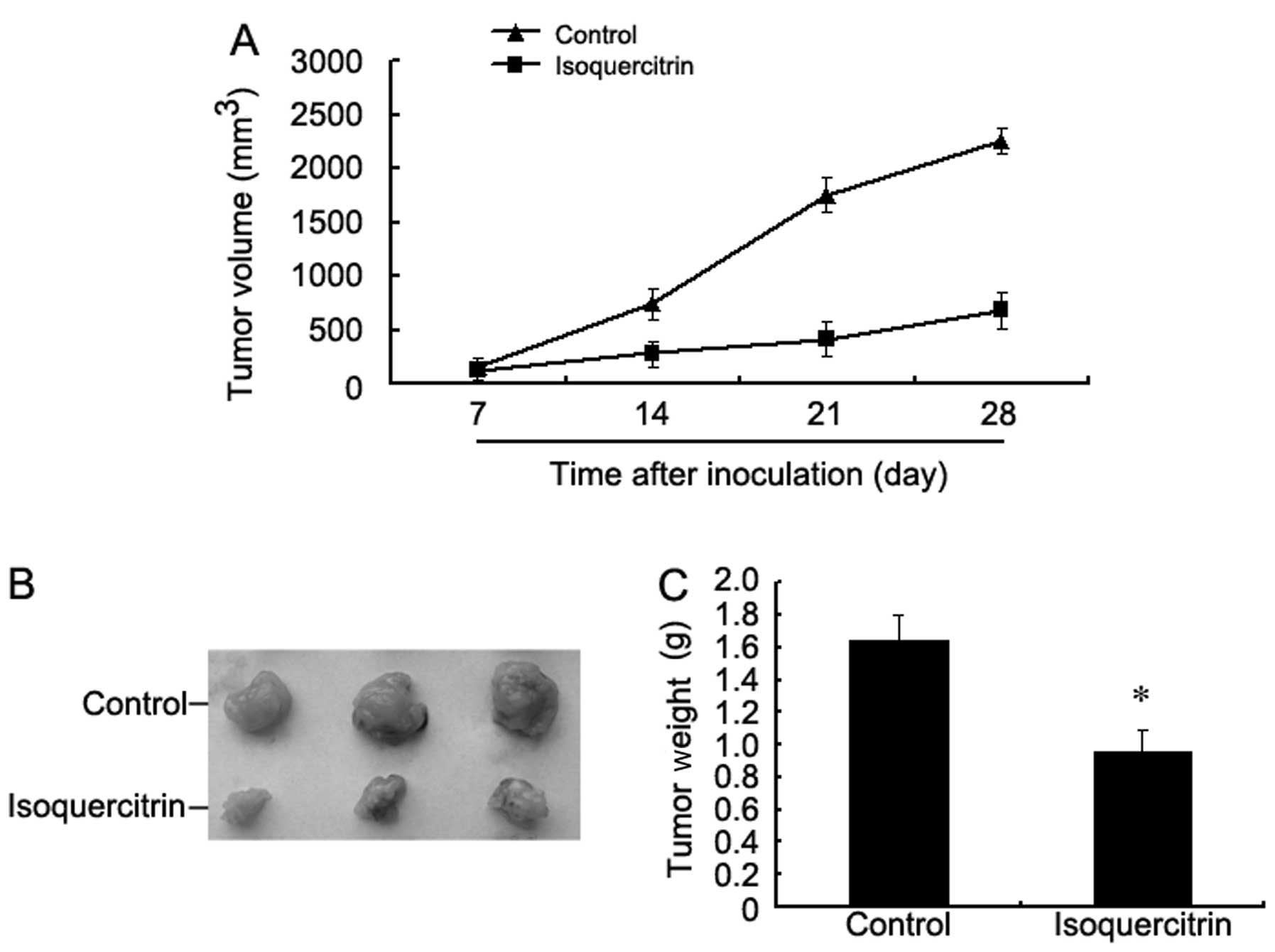|
1
|
van Meer S, de Man RA, Siersema PD and van
Erpecum KJ: Surveillance for hepatocellular carcinoma in chronic
liver disease: evidence and controversies. World J Gastroenterol.
19:6744–6756. 2013.PubMed/NCBI
|
|
2
|
Parkin DM, Bray F, Ferlay J and Pisani P:
Global cancer statistics, 2002. CA Cancer J Clin. 55:74–108. 2005.
View Article : Google Scholar
|
|
3
|
Liu Y, Chang CC, Marsh GM and Wu F:
Population attributable risk of aflatoxin-related liver cancer:
systematic review and meta-analysis. Eur J Cancer. 48:2125–2136.
2012. View Article : Google Scholar : PubMed/NCBI
|
|
4
|
Li M, Qiao C, Qin L, Zhang J and Ling C:
Application of traditional Chinese medicine injection in treatment
of primary liver cancer: a review. J Tradit Chin Med. 32:299–307.
2012. View Article : Google Scholar : PubMed/NCBI
|
|
5
|
Maluccio M and Covey A: Recent progress in
understanding, diagnosing, and treating hepatocellular carcinoma.
CA Cancer J Clin. 62:394–399. 2012. View Article : Google Scholar : PubMed/NCBI
|
|
6
|
Belghiti J and Fuks D: Liver resection and
transplantation in hepatocellular carcinoma. Liver Cancer. 1:71–82.
2012. View Article : Google Scholar
|
|
7
|
Eguchi S, Kanematsu T, Arii S, Omata M,
Kudo M, Sakamoto M, Takayasu K, Makuuchi M, Matsuyama Y and Monden
M; Liver Cancer Study Group of Japan. Recurrence-free survival more
than 10 years after liver resection for hepatocellular carcinoma.
Br J Surg. 98:552–557. 2011.PubMed/NCBI
|
|
8
|
Huang J, Yan L, Cheng Z, Wu H, Du L, Wang
J, Xu Y and Zeng Y: A randomized trial comparing radiofrequency
ablation and surgical resection for HCC conforming to the Milan
criteria. Ann Surg. 252:903–912. 2010. View Article : Google Scholar : PubMed/NCBI
|
|
9
|
Wang W, Shi J and Xie WF: Transarterial
chemoembolization in combination with percutaneous ablation therapy
in unresectable hepatocellular carcinoma: a meta-analysis. Liver
Int. 30:741–749. 2010. View Article : Google Scholar : PubMed/NCBI
|
|
10
|
Marelli L, Stigliano R, Triantos C,
Senzolo M, Cholongitas E, Davies N, Yu D, Meyer T, Patch DW and
Burroughs AK: Treatment outcomes for hepatocellular carcinoma using
chemoembolization in combination with other therapies. Cancer Treat
Rev. 32:594–606. 2006. View Article : Google Scholar : PubMed/NCBI
|
|
11
|
Roomi MW, Roomi NW, Kalinovsky T,
Niedzwiecki A and Rath M: Micronutrient synergy in the fight
against hepatocellular carcinoma. Cancers. 4:323–339. 2012.
View Article : Google Scholar : PubMed/NCBI
|
|
12
|
Ghosh A, Ghosh D, Sarkar S, Mandal AK,
Thakur Choudhury S and Das N: Anticarcinogenic activity of
nanoencapsulated quercetin in combating diethylnitrosamine-induced
hepatocarcinoma in rats. Eur J Cancer Prev. 21:32–41. 2012.
View Article : Google Scholar : PubMed/NCBI
|
|
13
|
Khan MS, Halagowder D and Devaraj SN:
Methylated chrysin induces co-ordinated attenuation of the
canonical Wnt and NF-kB signaling pathway and upregulates apoptotic
gene expression in the early hepatocarcinogenesis rat model. Chem
Biol Interact. 193:12–21. 2011. View Article : Google Scholar
|
|
14
|
Liu H, Dong A, Gao C, Tan C, Xie Z, Zu X,
Qu L and Jiang Y: New synthetic flavone derivatives induce
apoptosis of hepatocarcinoma cells. Bioorg Med Chem. 18:6322–6328.
2010. View Article : Google Scholar : PubMed/NCBI
|
|
15
|
Ullmannova V and Popescu NC: Inhibition of
cell proliferation, induction of apoptosis, reactivation of
DLC1, and modulation of other gene expression by dietary
flavone in breast cancer cell lines. Cancer Detect Prev.
31:110–118. 2007.PubMed/NCBI
|
|
16
|
Yang QH, Yang J, Liu GZ, Wang L, Zhu TC,
Gao HL and Kou XG: Study on in vitro anti-tumor activity of
Bidens bipinnata L. extract. Afr J Tradit Complement Altern
Med. 10:543–549. 2013.PubMed/NCBI
|
|
17
|
Wu J, Wan Z, Yi J, Wu Y, Peng W and Wu J:
Investigation of the extracts from Bidens pilosa Linn. var
radiata Sch Bip for antioxidant activities and cytotoxicity
against human tumor cells. J Nat Med. 67:17–26. 2013.
|
|
18
|
Kumari P, Misra K, Sisodia BS, Faridi U,
Srivastava S, Luqman S, Darokar MP, Negi AS, Gupta MM, Singh SC and
Kumar JK: A promising anticancer and antimalarial component from
the leaves of Bidens pilosa. Planta Med. 75:59–61. 2009.
View Article : Google Scholar : PubMed/NCBI
|
|
19
|
Kviecinski MR, Felipe KB, Schoenfelder T,
de Lemos Wiese LP, Rossi MH, Gonçalez E, Felicio JD, Filho DW and
Pedrosa RC: Study of the antitumor potential of Bidens
pilosa (Asteraceae) used in Brazilian folk medicine. J
Ethnopharmacol. 117:69–75. 2008.PubMed/NCBI
|
|
20
|
Ong PL, Weng BC, Lu FJ, Lin ML, Chang TT,
Hung RP and Chen CH: The anticancer effect of protein-extract from
Bidens alba in human colorectal carcinoma SW480 cells
via the reactive oxidative species- and glutathione
depletion-dependent apoptosis. Food Chem Toxicol. 46:1535–1547.
2008.PubMed/NCBI
|
|
21
|
Ma TT, Xie J, Zhang QL, Xu H, Li J and
Chen FH: Analysis of fingerprint and bioactive components of
Bidens biternata by HPLC. Zhong Yao Cai. 35:892–896.
2012.(In Chinese).
|
|
22
|
Zhong MM, Chen FH, Yuan LP, Wang XH and Wu
FR: Study on the property of adsorption and separation of the
macroporous resins for total flavonoids of Bidens bipinnata
L. Zhong Yao Cai. 30:338–341. 2007.(In Chinese).
|
|
23
|
Zhong MM, Chen FH, Yuan LP, Wang XH, Wu
FR, Yuan FL and Cheng WM: Protective effect of total flavonoids
from Bidens bipinnata L. against carbon
tetrachloride-induced liver injury in mice. J Pharm Pharmacol.
59:1017–1025. 2007.PubMed/NCBI
|
|
24
|
Yuan LP, Chen FH, Ling L, Bo H, Chen ZW,
Li F, Zhong MM and Xia LJ: Protective effects of total flavonoids
of Bidens bipinnata L. against carbon tetrachloride-induced
liver fibrosis in rats. J Pharm Pharmacol. 60:1393–1402.
2008.PubMed/NCBI
|
|
25
|
Fabregat I, Roncero C and Fernández M:
Survival and apoptosis: a dysregulated balance in liver cancer.
Liver Int. 27:155–162. 2007. View Article : Google Scholar : PubMed/NCBI
|
|
26
|
Koschny R, Brost S, Hinz U, Sykora J,
Batke EM, Singer S, Breuhahn K, Stremmel W, Walczak H, Schemmer P,
Schirmacher P and Ganten TM: Cytosolic and nuclear caspase-8 have
opposite impact on survival after liver resection for
hepatocellular carcinoma. BMC Cancer. 13:5322013. View Article : Google Scholar : PubMed/NCBI
|
|
27
|
Kumar S and Vaux DL: Apoptosis. A
cinderella caspase takes center stage. Science. 297:1290–1291.
2002. View Article : Google Scholar : PubMed/NCBI
|
|
28
|
Dewson G and Kluck RM: Mechanisms by which
Bak and Bax permeabilise mitochondria during apoptosis. J Cell Sci.
122:2801–2808. 2009. View Article : Google Scholar : PubMed/NCBI
|
|
29
|
Fombonne J, Bissey PA, Guix C, Sadoul R,
Thibert C and Mehlen P: Patched dependence receptor triggers
apoptosis through ubiquitination of caspase-9. Proc Natl Acad Sci
USA. 109:10510–10515. 2012. View Article : Google Scholar : PubMed/NCBI
|
|
30
|
Rew DA and Wilson GD: Cell production
rates in human tissues and tumours and their significance. Part II:
clinical data. Eur J Surg Oncol. 26:405–417. 2000. View Article : Google Scholar : PubMed/NCBI
|
|
31
|
Kazi A and Dou QP: Cell cycle and drug
sensitivity. Methods Mol Med. 111:33–42. 2005.
|
|
32
|
Fecher LA, Amaravadi RK and Flaherty KT:
The MAPK pathway in melanoma. Curr Opin Oncol. 20:183–189. 2008.
View Article : Google Scholar
|
|
33
|
Junttila MR, Li SP and Westermarck J:
Phosphatase-mediated crosstalk between MAPK signaling pathways in
the regulation of cell survival. FASEB J. 22:954–965. 2008.
View Article : Google Scholar : PubMed/NCBI
|
|
34
|
Roberts PJ and Der CJ: Targeting the
Raf-MEK-ERK mitogen-activated protein kinase cascade for the
treatment of cancer. Oncogene. 26:3291–3310. 2007. View Article : Google Scholar : PubMed/NCBI
|
|
35
|
Kohno M and Pouyssegur J: Targeting the
ERK signaling pathway in cancer therapy. Ann Med. 38:200–211. 2006.
View Article : Google Scholar : PubMed/NCBI
|
|
36
|
Das M, Garlick DS, Greiner DL and Davis
RJ: The role of JNK in the development of hepatocellular carcinoma.
Genes Dev. 25:634–645. 2011. View Article : Google Scholar : PubMed/NCBI
|
|
37
|
Dhanasekaran DN and Reddy EP: JNK
signaling in apoptosis. Oncogene. 27:6245–6251. 2008. View Article : Google Scholar : PubMed/NCBI
|
|
38
|
Nateri AS, Spencer-Dene B and Behrens A:
Interaction of phosphorylated c-Jun with TCF4 regulates intestinal
cancer development. Nature. 437:281–285. 2005. View Article : Google Scholar : PubMed/NCBI
|
|
39
|
Marengo B, De Ciucis CG, Ricciarelli R,
Furfaro AL, Colla R, Canepa E, Traverso N, Marinari UM, Pronzato MA
and Domenicotti C: p38MAPK inhibition: a new combined approach to
reduce neuroblastoma resistance under etoposide treatment. Cell
Death Dis. 4:e5892013. View Article : Google Scholar : PubMed/NCBI
|
|
40
|
Guo K, Liu Y, Zhou H, Dai Z, Zhang J, Sun
R, Chen J, Sun Q, Lu W, Kang X and Chen P: Involvement of protein
kinase C β-extracellular signal-regulating kinase 1/2/p38
mitogen-activated protein kinase-heat shock protein 27 activation
in hepatocellular carcinoma cell motility and invasion. Cancer Sci.
99:486–496. 2008.
|















